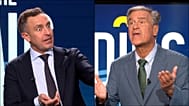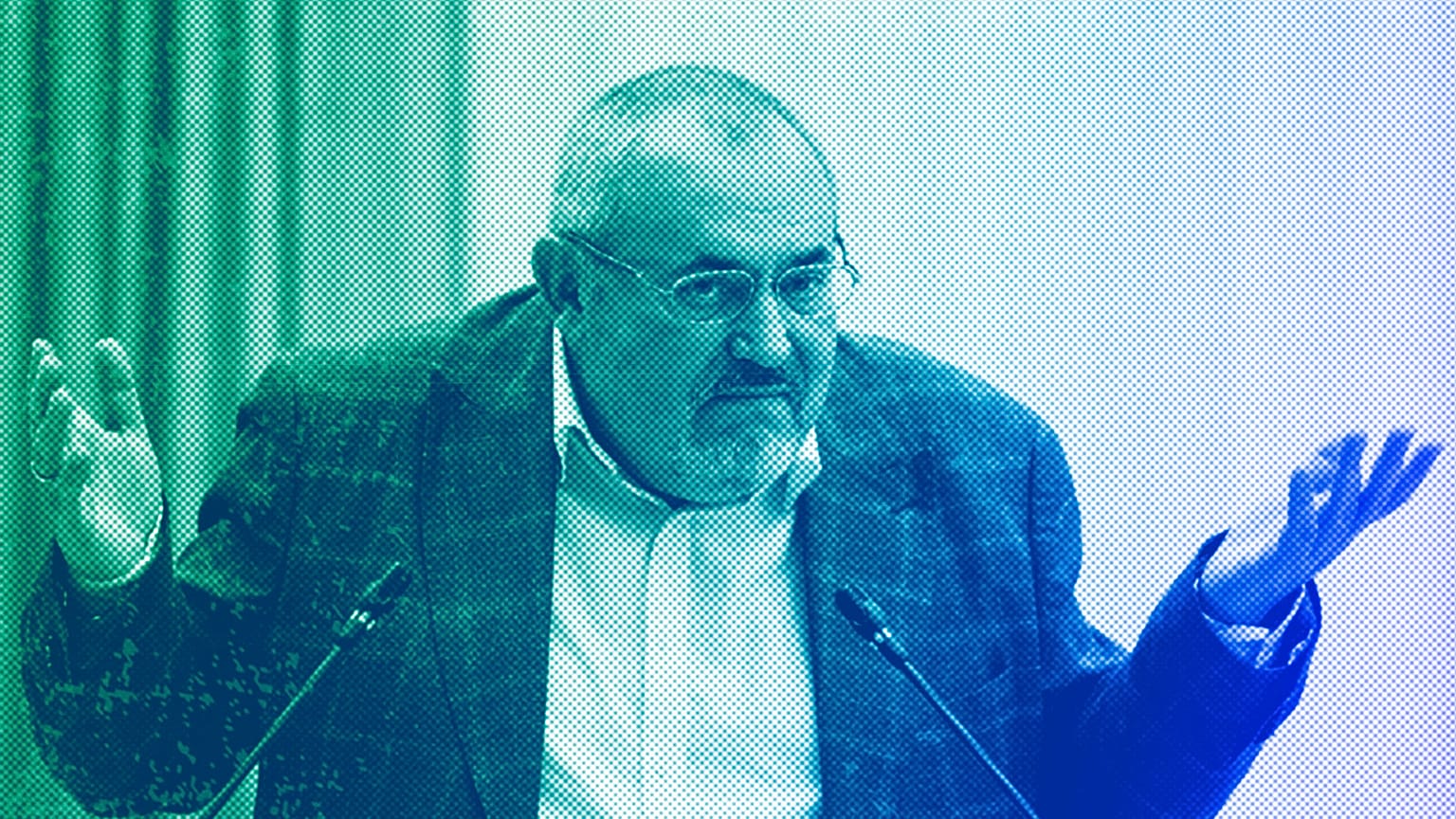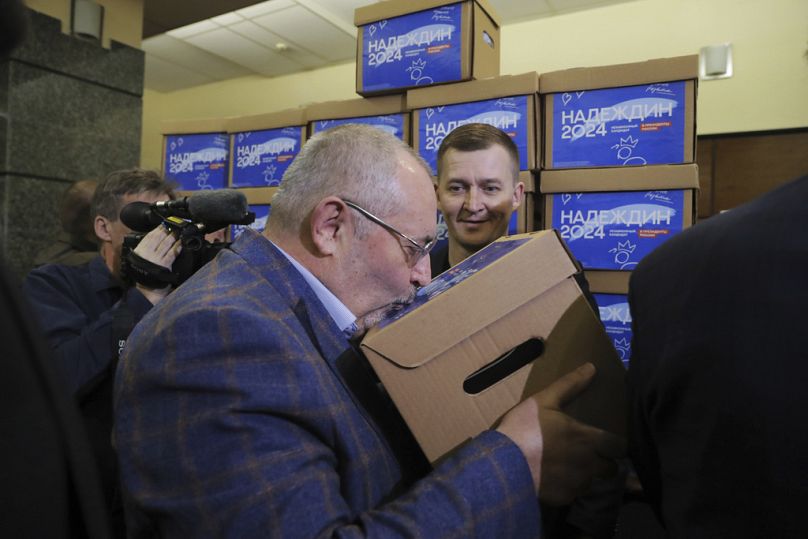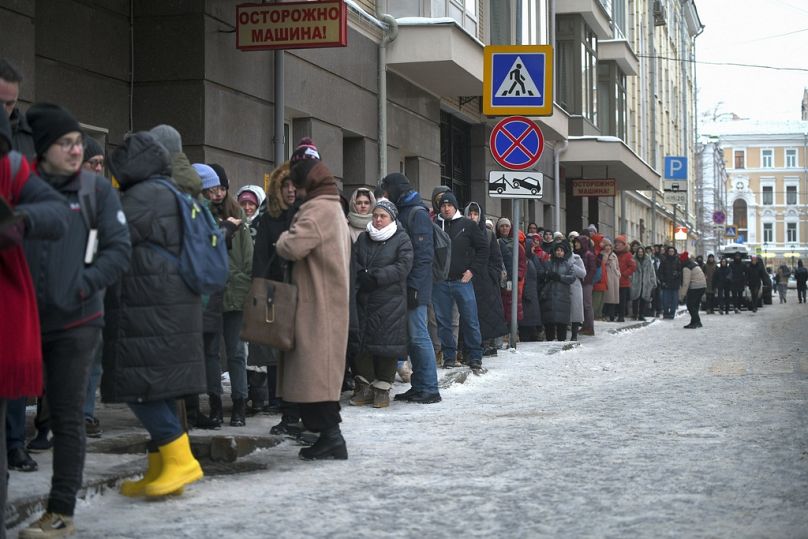Boris Nadezhdin’s role was to be a certified loser. Yet, as hopeless and uninspiring of a candidate he was, he unwittingly gave Russian liberals hope, Aleksandar Đokić writes.
After a week of what could be described as peak cheap court drama at its finest, the last liberal potential candidate for the Russian presidential election, Boris Nadezhdin, has been finally rejected by the country's Central Electoral Commission.
In a tense administrative showdown of the opening week of February, Nadezhdin first submitted 104,700 signatures necessary for his candidature to be approved, since he isn’t running as a representative of a parliamentary political party.
The Central Electoral Commission, the bureaucratic body which formally decides whether aspiring candidates fulfil the criteria to run in the elections or not, then went on to scrap 9,147 of those, or more than the legally allowed 5% of invalid signatures.
Nadezhdin appealed the decision, but the bureaucrats ultimately rejected his complaint on Thursday.
In the end, there will be just four candidates running for the post of Russia’s supreme leader, all of them representatives of parliamentary parties, which are eligible to run by default.
All other candidates, except Vladimir Putin himself, had their hopes dashed by the Central Electoral Commission.
Putin’s official rivals for the 17 March election will be LDPR's Leonid Slutsky, Nikolay Kharitonov of the Communist Party, and New People's Vladislav Davankov.
All of them constitute what is known as loyal opposition; in other words, they’re window dressing, as Putin can’t be the only candidate, it’s against the Constitution and the optics are rather bad.
The message out of the Kremlin to Russians is, the bare bones of democratic pretence must be maintained.
Hardly the leader we need
On the other hand, Boris Nadezhdin himself was not what one would call a leader of the liberal or any kind of opposition by any means at all.
Over the years, he has repeatedly participated in political talk shows broadcast on Russian federal TV channels, as a handpicked representative of what was supposed to be “liberal opposition”.
He was on the infamous Vladimir Solovyov’s show more than once, whose rants can only be compared to those of Hans Fritzsche, the Nazi star radio host, later convicted of war crimes by the Nuremberg tribunal.
Nadezhdin also frequently took part in other federal TV talk shows such as Pyotr Tolstoy’s “Time Will Tell” and was a guest on Yevgeny Popov’s and Olga Skabeeva’s “60 Minutes” program.
All of the “journalists” mentioned above went on to join Putin’s United Russia party and renounced any semblance of journalist integrity. The democratic world has also sanctioned them in the meantime.
Nadezhdin’s political background is in line with his previous, but more successful colleagues from the ranks of Putin’s technocratic elite of today, such as the influential post-Soviet mainstay Sergey Kiriyenko, known as one of Boris Yeltsin's former prime ministers.
Nadezhdin was also a member of Boris Nemtsov’s team at the end of the 1990s when the liberal wing of Russia’s political system had its last hurrah.
Nemtsov was assassinated late into Putin’s era, refusing to submit to autocratic rule, like many of his peers did.
Nadezhdin went on to change several mainstream liberal parties in Russia while Putin was already in power.
He worked with Putin’s former Minister of Finance Alexey Kudrin and took part in the primaries of Putin’s United Russia party in 2015 but was defeated. Then, in 2021, he unsuccessfully ran in the parliamentary elections as the representative of the Just Russia party, which was by then an openly alt-right political organisation completely loyal to Putin.
Supporting the platform, not the face on the posters
In essence, Nadezhdin as a political figure bears no importance. Putin’s administration could’ve picked anyone out of several other characters ready to perfectly fill his shoes as representatives of the loyal liberal opposition.
What matters for Russian society and bears mentioning is the effect which Nadezhin’s failed candidacy achieved — an effect which even Nadezhdin himself couldn’t have hoped for.
In another twist of cynical irony, his last name happens to contain the word “hope”. And all of a sudden, traces of hope appeared, albeit briefly.
For the first time since the beginning of the invasion of Ukraine, the Russian liberal public dared to show its collective face on the streets of the big cities.
Long queues of people who wanted to give their signatures and show support for his candidacy could be seen as early as the beginning of this year.
This was mainly achieved by the real liberal opposition, such as Mikhail Khodorkovsky and Alexey Navalny’s associates, unexpectedly standing behind his candidacy.
From then on, it didn’t matter in the slightest whether Nadezhdin was coopted by Putin’s administration or not; he still ran on the anti-war and pro-democracy platform and the large number of people supporting him did so because of the issues and not out of affection for him as a political leader.
Maybe hope does die last after all
What came to be was the next best thing to protest in Russia’s middle-class circles.
For the first time, in the middle of totalitarian Russia, liberals took to the streets, stood next to each other, likely conversed on political issues and no force could scare them away. This is a big deal for Russia’s atomised big-city segment of society.
Liberal support for Nadezhdin grew so much, that he was realistically seen as a runner-up in the coming elections, an outcome Putin’s administration did not want to see happening.
Nadezhdin’s role was to be a certified loser, garnering no more than 1-2% of votes, thus demonstrating to fragmented and disenchanted Russian liberals that they were isolated and few in numbers.
The snowball effect of grassroots support for Nadezhdin annihilated the premise of Putin’s team, so when the first independent polling results came out, giving Nadezhdin a projected share of no less than 10%, it was clear that his project was to be cancelled and his candidacy refused.
By then, however, it was already too late to erase the positive social effect Nadezhdin’s candidacy had caused.
The decision of the Russian liberal opposition turned out to be the right one, for a change.
Nadezhdin had achieved what they could not. He brought Russian liberals out of their kitchens, where serious matters in Russian society are commonly discussed, and into the open.
And as hopeless and uninspiring of a candidate as he was, he unwittingly gave Russian liberals hope.
Aleksandar Đokić is a Serbian political scientist and analyst with bylines in Novaya Gazeta. He was formerly a lecturer at RUDN University in Moscow.
At Euronews, we believe all views matter. Contact us at view@euronews.com to send pitches or submissions and be part of the conversation.

















